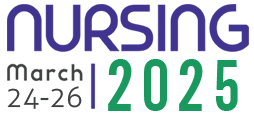Title: Latent profile analysis of dyadic mental health literacy among stroke patients and their caregivers
Abstract:
Background: Stroke is the leading cause of death and disability in adults in China, which brings heavy burden to patients and their families. In the process of coping with the disease, stroke patients and their caregivers often have negative emotions such as anxiety and depression, which affect each other and seriously affect dyadic health. As a dyadic whole, the mental health literacy of stroke patients and their caregivers is closely related.
Objective: To explore the categories of dyadic mental health literacy among stroke patients and their caregivers and to analyze the differences in the characteristics of different classes of stroke patients and their caregivers?
Methods: A convenient sampling method was used to select 287 dyads of stroke patients and their caregivers who were treated at a tertiary general hospital in Henan province from July to October 2020. The general information questionnaire, Multicomponent Mental Health Literacy and Social Support Rating Scale were used for investigation. Latent profile analysis was adopted to explore the categories of dyadic mental health literacy, and multiple logistic regression was used to analyze the influencing factors of each category.
Results: Stroke patients and their caregivers were divided into four categories based on scores of mental health literacy: dyadic low resource group(20.3%), dyadic low literacy group(53.7%), dyadic low belief group(11.3%), dyadic high literacy group(14.7%). The patient's age, average monthly household income, the caregiver's age, the caregiver's Social Support Rating Scale score, the caregiver's educational level, daily care time and total length of care were the factors influencing the categories of dyadic mental health literacy among stroke patients and their caregivers (P < 0.05). Conclusions Stroke patients and their caregivers were divided into four categories based on scores of mental health literacy. Medical staff should carry out comprehensive psychological interventions for stroke patients and their caregivers with different dyadic mental health literacy characteristics, so as to improve dyadic mental health literacy.
Audience Take Away:
- Stroke patients and their caregivers were divided into four categories based on scores of mental health literacy: dyadic low resource group(20.3%), dyadic low literacy group(53.7%), dyadic low belief group(11.3%), dyadic high literacy group(14.7%).
- The dyadic low literacy group was the highest, suggesting that it is urgent to carry out precise and diversified interventions according to the potential classification characteristics from the dyadic perspective of patients and caregivers to improve the dyadic mental health literacy of stroke patients and caregivers.
- Social support as an intervention factor, we should strengthen the dyadic social support system, build mental health communication circles between stroke patients and their caregivers, guide patients and their caregivers to establish family peer groups, so as to stimulate the awareness of dyadic mental health drive and improve the dyadic life happiness index.


